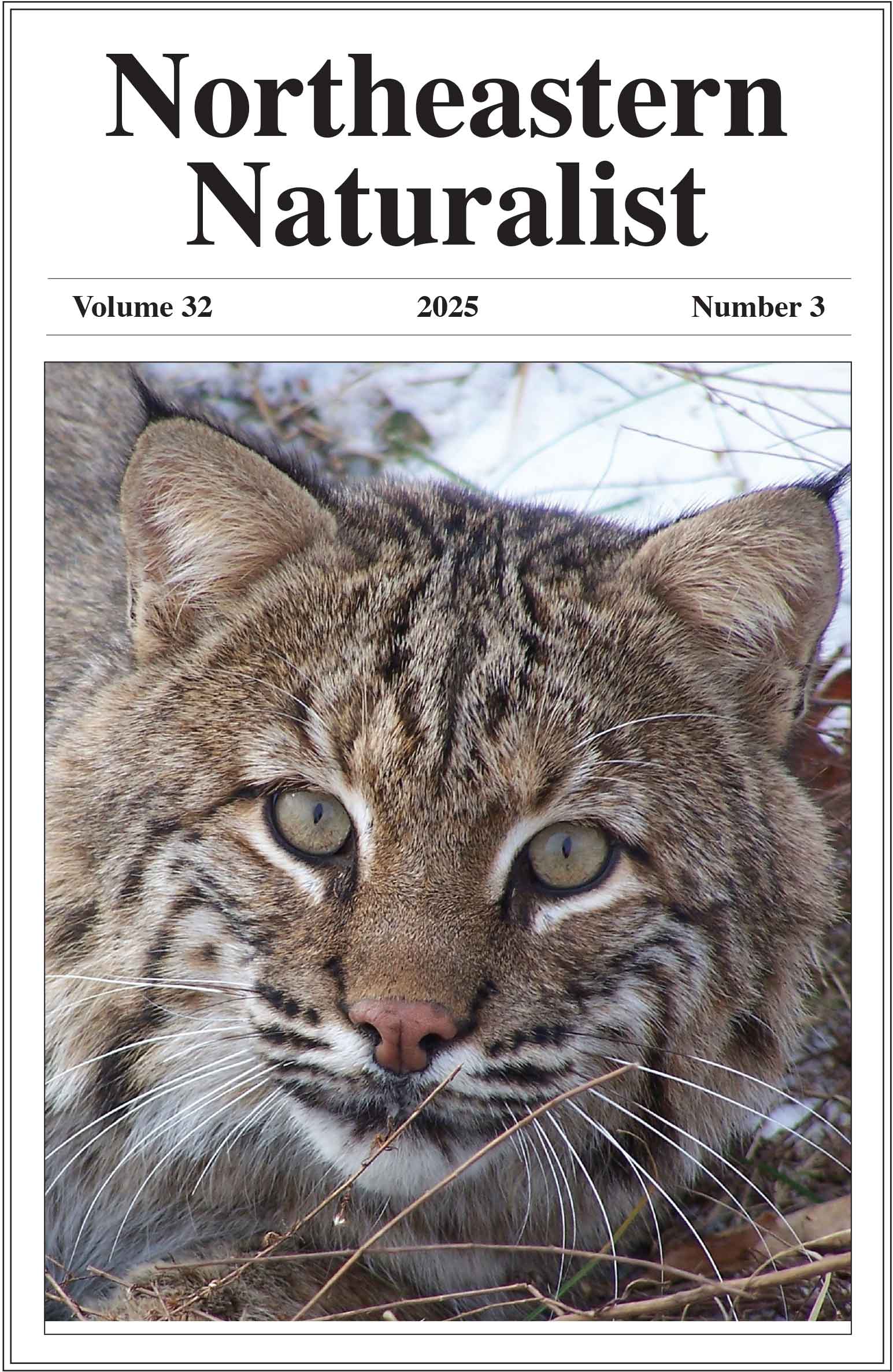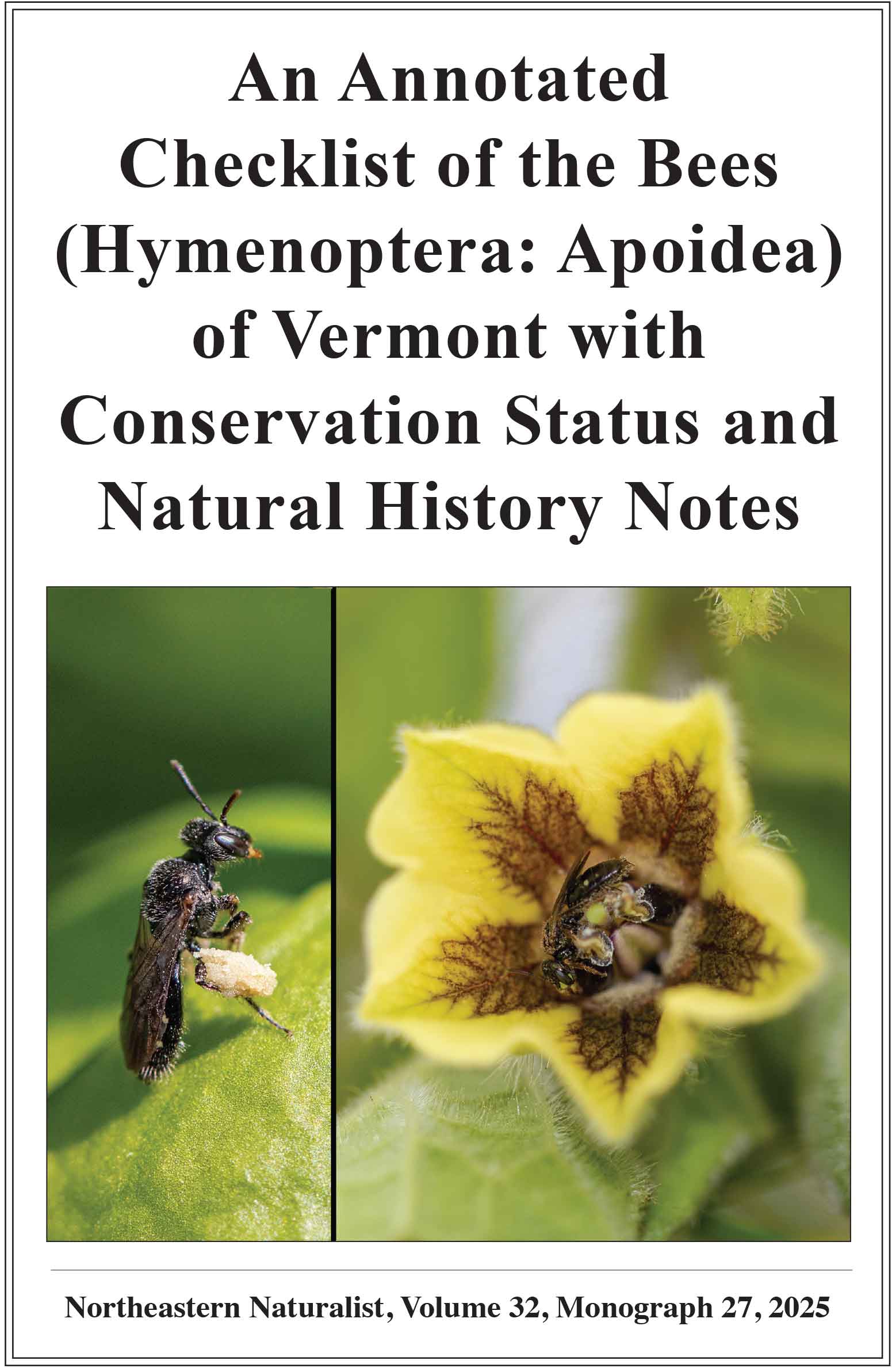Reproductive Chronology and Den-Site Characteristics of a Repatriating Bobcat Population in Ohio
Cheryl M. Mollohan1, Albert L. LeCount2, and Suzanne Prange3,*
1WildWork, 48351 State Route 255, Sardis, OH 43946. 2WildWork, 400 North Jefferson Street #75, Wickenburg, AZ 85390. 3Appalachian Wildlife Research Institute, PO Box 396, Athens, OH, 45701. *Corresponding authors.
Northeastern Naturalist, Volume 32, Issue 3 (2025): 388–406
First published early online: 30 July 2025
Abstract
Lynx rufus (Bobcat) was extirpated from Ohio during the mid-1800s. After an almost 150-year absence, the self-repatriation of Bobcats began during the 1980s in the Appalachian regions of eastern and southeastern Ohio. Initial reestablishment occurred almost simultaneously in 2 spatially distinct areas in eastern and southeastern Ohio. For an extirpated species to successfully re-populate, successful reproduction must occur. This work focused on Bobcat repopulation in southeastern Ohio. Our objectives were to document (1) the reproductive chronology and timing of repatriating Bobcats and (2) Bobcat natal and maternal den-site characteristics. We documented denning behavior and the assumed birth of kittens 10 times from 4 females from spring 2012 through spring 2015. On 8 occasions, females exhibited denning behavior for at least 8 weeks. Two females made sudden long movements 5–7 d after denning behavior began and did not return to the den site. In both cases, these females denned and had kittens again 72–77 d later. Annually, the first attempt at denning occurred 20 April–6 May. One female believed to be a 2-year-old when captured in February 2013, dispersed ~5 km before establishing a permanent home range. She appeared to give birth to kittens in late September 2013, but the den was not located. We located 10 natal den sites, and identified the actual structure at 9 of these. Nine of the 10 natal den sites were in logging residue. Thus, timber-harvest residue is an important resource for Bobcats, providing safe, secure, and successful den sites.
![]() Download Full-text pdf (Accessible only to subscribers. To subscribe click here.)
Download Full-text pdf (Accessible only to subscribers. To subscribe click here.)
Access Journal Content
Open access browsing of table of contents and abstract pages. Full text pdfs available for download for subscribers.
Issue-in-Progress: Vol. 32(4) ... early view
Check out NENA's latest monograph and Special Issue:













 The Northeastern Naturalist is a peer-reviewed journal that covers all aspects of natural history within northeastern North America. We welcome research articles, summary review papers, and observational notes.
The Northeastern Naturalist is a peer-reviewed journal that covers all aspects of natural history within northeastern North America. We welcome research articles, summary review papers, and observational notes.